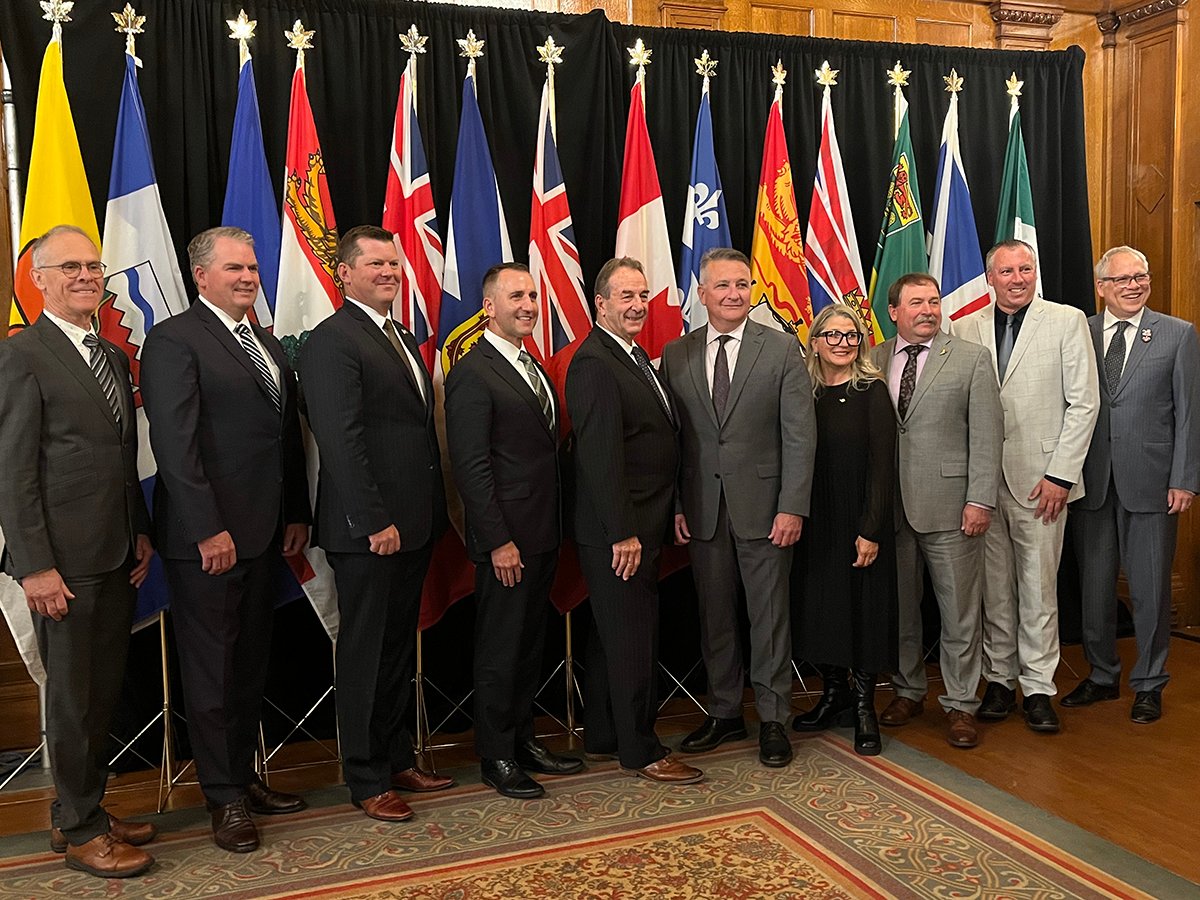Don Simpson was lying on his couch, watching television when he heard a
boom outside his farm home near Brookdale, Man., on the night of April
14.
He thought maybe a jet was passing overhead or that a truck and trailer
were pulling into his yard. He went outside to take a look.
“Just as I opened the door and looked out, everything got real bright.
I thought, ‘Oh … the pipeline blew!’ “
He was right.
Read Also

Ag ministers hear request for regulatory change, more infrastructure development
Canada’s agriculture ministers met today in Winnipeg after postponing their usual July in-person meeting due to wildfires.
A section of natural gas pipeline that runs under the fields had
exploded. By Simpson’s estimate, the flames from the explosion curled
at least 300 metres into the air.
Simpson and a neighbour reported the disaster. All they could do after
that was watch while emergency crews rushed to the scene.
For Simpson, the story could have ended there – except for the gaping
hole that the explosion left in his field.
The hole is about 20 m wide, 100 m long, and deep enough to hold a
four-wheel-drive tractor.
Soil within 50 metres of the crater was fried to what Simpson likened
to briquettes or lava rock.
The soil on roughly 12 surrounding acres was scorched red, drawing
comparisons to the surface of Mars.
TransCanada Pipelines Ltd., the company that owns the pipeline, has
promised to restore the damaged field.
Simpson had planned to seed canola there this spring, but he doubts the
scorched acres around the blast site will grow much of anything this
year, and maybe not even in years to come.
TransCanada spokesperson Hejdi Carlsen said that in addition to
repairing the field, TransCanada will also compensate Simpson for lost
crop production due to the blast.
Simpson said he is satisfied with the assurances he has received from
the company.
At the same time, he is cautious about what kind of soil is hauled onto
his land to restore the damaged field. A lot of it is expected to come
from along a nearby creek bed.
He doesn’t want topsoil hauled in from fields somewhere else, for fear
it might bring in noxious weeds.
“We have enough weeds. We don’t need any more.”
The gas pipeline explosion was at least the third in Manitoba since
1995.
No one was injured by the blast, about 30 kilometres southeast of
Brandon. The cause remains under investigation.
TransCanada owns 38,000 km of pipeline in Canada. Much of that is in
rural areas, where the company has easements to run the lines under
farmers’ fields.
Despite the damage to his property, Simpson is able to joke about the
April 14 mishap. When asked whether he’ll be leery in the future about
doing field work over top of the pipeline once the restoration is
complete, he replied: “I might just kick the tractor up a gear as I go
across.”














